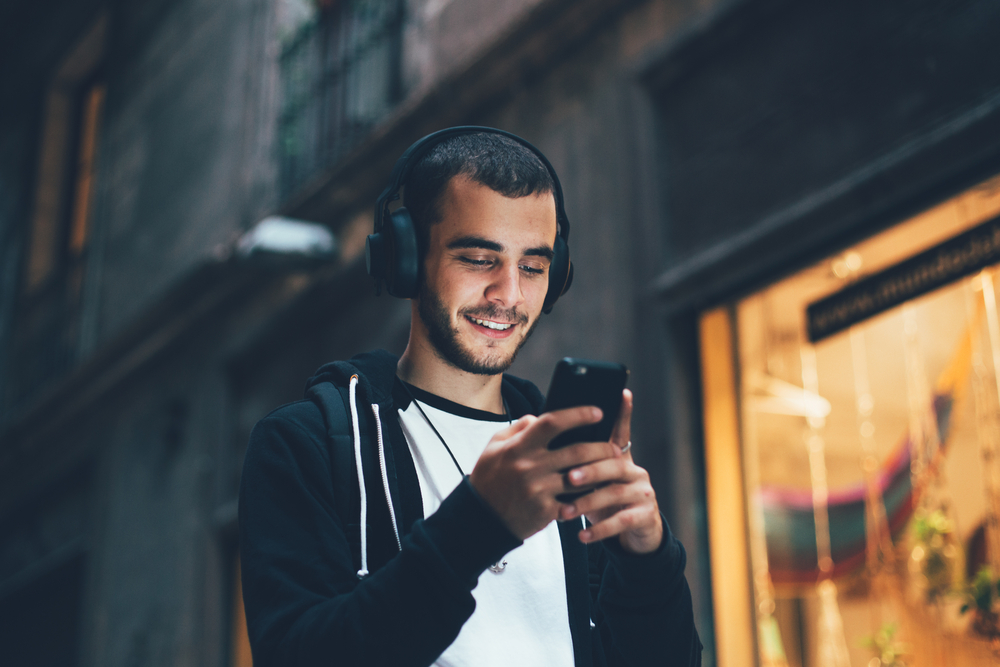
James is a music aficionado who has mastered the art of incorporating his favorite tunes into his day-to-day life, easily transitioning from Spotify at his desk to Pandora on his runs, and meticulously crafting playlists to beautifully enhance every activity, whether he’s pumping iron, cooking a meal, or immersed in a gaming session. He’s rarely observed without his headphones, which have become an integral part of his daily life, turning every moment into an individualized audio experience. However, while James gets relaxation and joy in the immersive world of music, the very thing he treasures could be quietly damaging his precious sense of hearing.
There are safe ways to enjoy music and ways that are more hazardous to your hearing health. Unfortunately, a, any us lean towards the second option.
What is the connection between prolonged exposure to music and hearing loss?
Extended exposure to loud sounds can lead to a decline in your auditory ability. Hearing loss is typically connected to growing older, but recent studies indicate that it is mainly caused by damage from exposure to loud sounds rather than being a natural part of getting older.
Younger people are more sensitive to noise-induced harm as their ears are still in the developmental stage. However, teenagers tend to ignore the possible hazards of excessive noise over time. A growing amount of young people are experiencing hearing loss due to frequent use of loud headphones.
Can one listen to music without any safety issues?
Listening to music at full blast without any limits is the most hazardous approach. There is a way to enjoy to music more safely, which usually means reducing the volume. The suggested safe volume levels are normally as follows:
- Adults should limit their device listening time to 40 hours or less and make sure the volume stays under 80 dB.
- If you’re under 18, 40 hours is still fine, just be sure to keep the volume at a safe level, 75 decibels or lower.
Forty hours week is roughly five hours and forty minutes a day. Though it might appear excessive, the time can go by surprisingly fast. Despite this, the majority of individuals possess a well-developed understanding of time management, a skill that is usually mastered during early childhood.
The more challenging part is monitoring your volume. On most smart devices, computers, and televisions, volume is not measured in decibels. It’s gauged on some random scale. Maybe it’s 1-100. But maybe it’s 1-16. You might be unaware of the maximum volume capacity of your device or how near you are to reaching that limit.
Tips for efficiently keeping track of your music volume
Numerous free noise monitoring apps can be found for both iPhone and Android devices to tackle this issue. These apps supply instant feedback on ambient noise levels, allowing users to tweak their listening volume to safe levels.
That’s why the majority of hearing specialists recommend the use of one of many free noise monitoring apps. These extensively accessible apps, compatible with both iOS and Android platforms, supply instant sound-level feedback on the ambient noise around you. In this manner, you can monitor the decibel level of your music as it plays and make changes as necessary.
A volume comparison: garbage disposals and more
As example, 80 dB is roughly equivalent to the noise produced by a common garbage disposal or dishwasher– audible, yet not overly loud. Recognizing this volume level is important because it marks the point at which hearing loss becomes a real and substantial worry.
It’s crucial to exercise heightened vigilance when noise levels go above this critical point. Consider limiting exposure to overly loud music by enjoying select tracks at full volume instead of indulging in complete albums.
Repeated exposure to elevated volume levels can lead to hearing problems including tinnitus and eventual hearing loss. By being aware of when our ears venture into the danger zone, we empower ourselves to make informed choices, with the ultimate goal of fostering safer listening practices.
Schedule a hearing test
For better prioritization of your hearing health, it is advisable to consult a hearing professional to schedule a thorough hearing exam. Proactive steps such as routine screenings can detect any possible problems early on, allowing for timely interventions and individualized recommendations to protect your precious sense of hearing.
